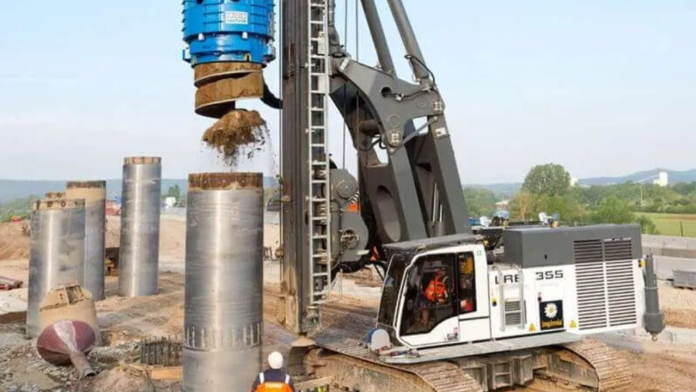ASTM A252 Grade 3 is a high-strength, low-alloy structural steel pipe specification commonly used in the building of deep foundations and structural support systems. Recognized for its exceptional strength, it has minimum yield strength and tensile strength. This steel grade is specifically developed for applications that require high structural integrity, such as piling foundations, maritime structures, and bridge abutments.
According to the ASTM A252 standard, Grade 3 is differentiated from Grade 1 and Grade 2 by having a higher yield strength, which leads to better load-bearing capacity. The diverse applicability of astm a252 grade 3 includes scenarios that require consistent performance under heavy loads and deep embedding in a variety of terrains. Grade 3 ASTM A252 pipes are commonly welded to ensure structural integrity and compatibility for a variety of construction projects.
What Are The Different Methods Of Testing ASTM A252 Grade 3 Pipes?
Grade 3 ASTM A252 pipes are tested using a variety of procedures to ensure that they meet standards. Visual inspection for surface defects is common, as are dimensional checks to verify size and shape, non-destructive testing (NDT) procedures like ultrasonic or magnetic particle testing for internal problems, and mechanical tests like tensile and impact tests. Rigorous testing is required to ensure pipe quality and appropriateness for demanding structural applications.
Essential Mechanical Properties of ASTM A252 Grade 3 Piling Pipe
Grade 3 Piling Pipe, ASTM A252 crucial components in the construction of deep foundations, providing structural support for buildings, bridges, and marine infrastructure. The mechanical qualities of these pipes are important factors in determining their performance and acceptability for a variety of applications. This article delves into the key mechanical features of ASTM A252 Grade 3 piling pipes.
Yield Strength
Yield strength is a fundamental mechanical parameter that determines when a material undergoes plastic deformation. ASTM A252 Grade 3 requires a minimum yield strength of 45,000 psi (310 MPa). This attribute is critical because it represents the maximum stress the steel can withstand without irreversible deformation. Higher yield strength is useful for bearing heavy loads and resisting the stresses exerted on the piling pipe in deep foundation applications.
Tensile Strength
Tensile strength is a key mechanical attribute of ASTM A252 Grade 3 Piling pipes, indicating its maximum resistance to stretching or pulling forces. With a minimum requirement of 66,000 psi (455 MPa), this feature provides the pipes’ robustness and ability to bear external forces, ensuring their endurance and reliability in a variety of loading scenarios. Tensile strength is an important aspect in determining the overall structural performance and integrity of these pipes used in deep foundation applications.
Elongation
Elongation is an important mechanical parameter of ASTM A252 Grade 3 piling pipes; it represents the percentage increase in length before rupture during a tensile test. While particular quantities may vary, ASTM standards normally include an elongation percentage. This attribute reflects the material’s capacity to bend without fracturing, ensuring flexibility and resilience in difficult soil conditions and under variable loads, and contributing to the overall dependability of piling pipes.
Impact Test
The impact test is a critical evaluation of Grade 3 Piling Pipe, ASTM A252, determining their toughness and resilience. This test simulates circumstances that involve sudden loading or shock, ensuring that the material can absorb energy without fracturing. The impact test is especially important in maritime and seismic applications because it highlights the pipes’ ability to endure dynamic forces, which contributes to their overall durability and appropriateness for demanding settings.
Hardness
Hardness is an important attribute in ASTM A252 Grade 3 piling pipes since it indicates the material’s resistance to indentation or scratching. While not frequently expressly stated, maintaining an adequate hardness balance is critical for resisting wear and deformation, particularly in abrasive soil conditions or aggressive settings. Proper hardness contributes to the longevity and durability of piling pipes, ensuring their usefulness as structural support in a variety of demanding applications.
Chemical Composition
While not a mechanical attribute, the chemical composition of ASTM A252 Grade 3 is an important component in determining its mechanical properties. Carbon, manganese, and phosphorus are among the components indicated in the chemical makeup. The correct chemical composition is critical for obtaining the necessary balance of strength, flexibility, and corrosion resistance, guaranteeing that the piling pipes fulfill the set standards and performance criteria.
Sum Up
The mechanical qualities of Grade 3 Piling Pipe, ASTM A252play an important role in the design and construction of deep foundations. Mechanical qualities ensure that these pipes can successfully sustain structures in harsh conditions. Engineers and project managers must carefully evaluate these mechanical qualities to ensure Grade 3 Piling Pipe, ASTM A252long-term structural integrity and reliability in a wide range of demanding applications.














